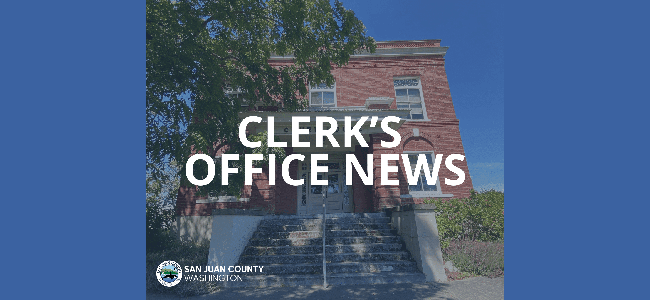From State Senator Kevin Ranker’s Office
Thanks to concerned and sustained prevention efforts at the state level, there hasn’t yet been a major oil spill in Puget Sound. State Sen. Kevin Ranker, D-San Juan, says there is still critical work to be done to keep it that way.
Ranker sponsored legislation that passed into law in 2009, capping a twelve year effort at the state and federal level to develop a sustainable funding mechanism for the Neah Bay Rescue Tug — the first and best defense to a Gulf of Mexico-type disaster in our ocean waters. The bill required the shipping industry responsible for the billions of gallons of oil that is transported through the Puget Sound each year to permanently fund a rescue tug for distressed ships in the Strait of Juan de Fuca or on the open-ocean coast. Washington State taxpayers have paid for this expense for years. Ranker’s bill switched the burden from the tax payers to the industry that posses the risk — saving millions in taxpayer dollars while providing long-term sustainable funding for our best defense again a catastrophic spill.
This week, the industry announced the details of its finalized cost-sharing plan for the rescue Tug– the final step necessary for a permanently placed Neah Bay Rescue Tug.
“The rescue tug is the last best defense to prevent a seaborne crisis from becoming a natural and economic disaster,” said Ranker, noting that the Neah Bay Tug has helped 45 vessels in distress since 1999. “We told industry: By July 1 of this year, you need come to an agreement on how you’ll permanently fund the tug. There were plenty of skeptics along the way, but the fact that the industry ultimately came through with a viable plan is huge and important news. I applaud their effort.”
Ranker said the tug is part of the best oil spill prevention, preparedness and response program in the nation, but that that program needs adequate funding to be fully effective.
“Our state’s spill program yields tremendous dividends in our efforts to keep oil out of our waters,” said Ranker. “While the tug is the best defense against a spill, the spills program must be adequately funded to respond when we do have a disaster – currently it is not.”
As in all other areas of state government, the recession has had a large impact on the oil spill program, which is funded with a per-barrel tax on oil. To cover the shortfall in 2009-11, the Oil Spill Prevention Account received a $6.5 million transfer from the general fund.
In the 2011-13 budget, a $2.4 million transfer is needed just to restore the program to 2007-09 levels. Bringing the program up to 2009-11 levels would require total additional fund of $7 million. According to the Department of Ecology, new program initiatives in light of the Gulf disaster would cost $2.5 million beyond that.
“In this budget environment, lawmakers need to find savings anywhere we can,” Ranker said. “But the Gulf disaster proves that big spills do happen, and the consequences are disastrous. Even without offshore rigs in Washington State, billions of gallons oil cross our waters annually. When you think about the importance of the Puget Sound – economically, culturally and environmentally – a preventable spill happening here is unacceptable. It’s clear that fully funding the Washington State oil spills program is a wise investment that will protect our natural resources and save us billions of dollars in the future.”
**If you are reading theOrcasonian for free, thank your fellow islanders. If you would like to support theOrcasonian CLICK HERE to set your modestly-priced, voluntary subscription. Otherwise, no worries; we’re happy to share with you.**






